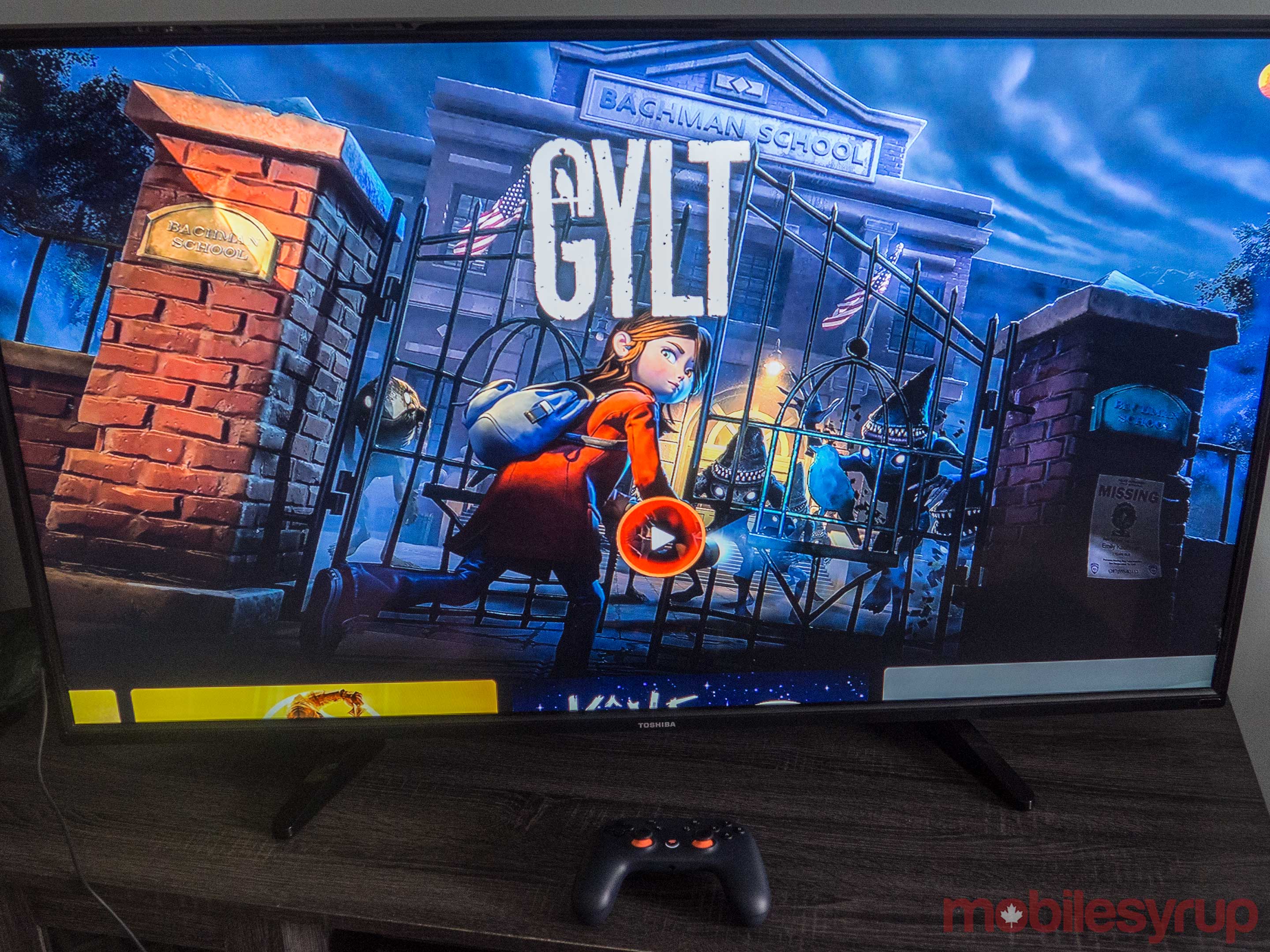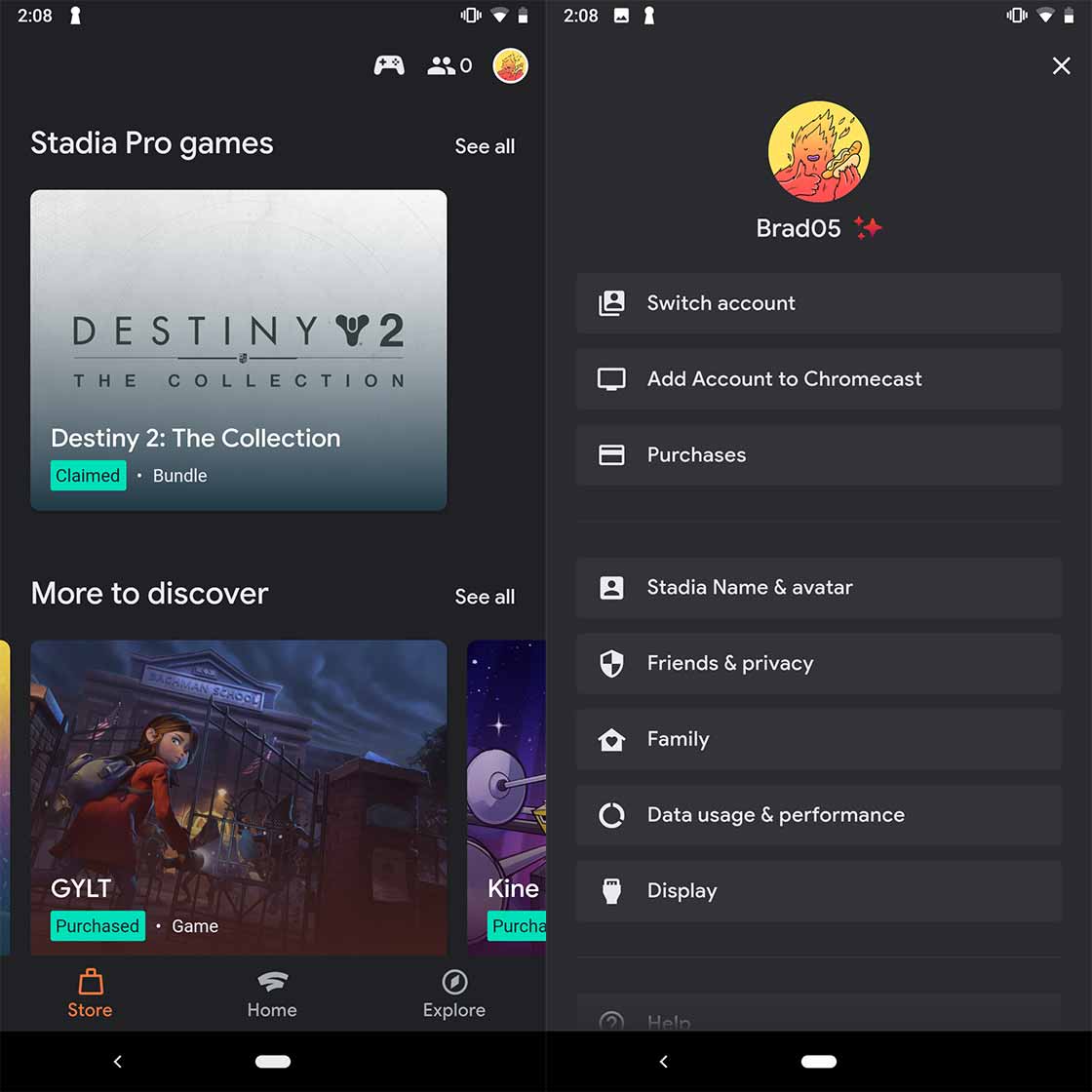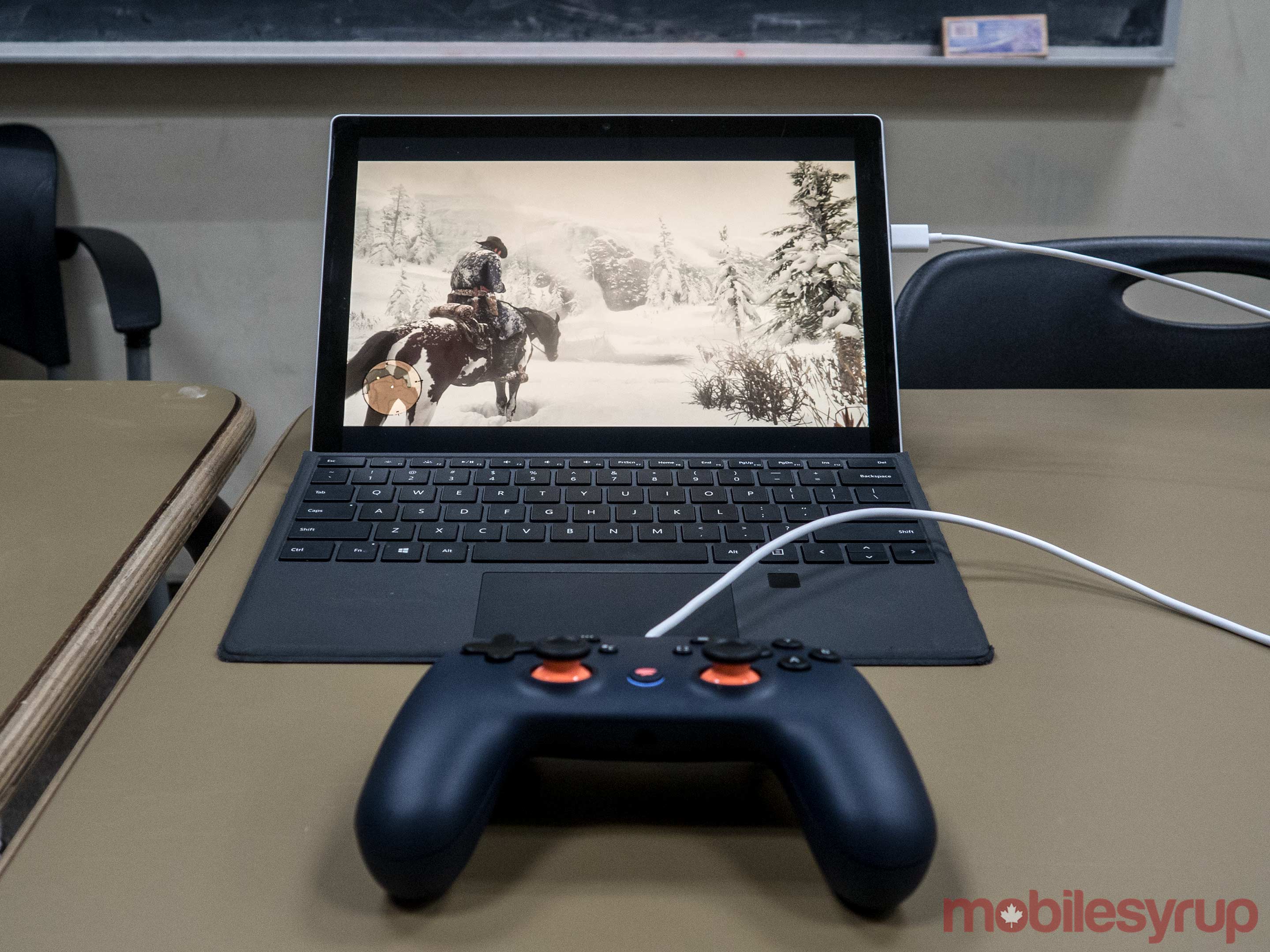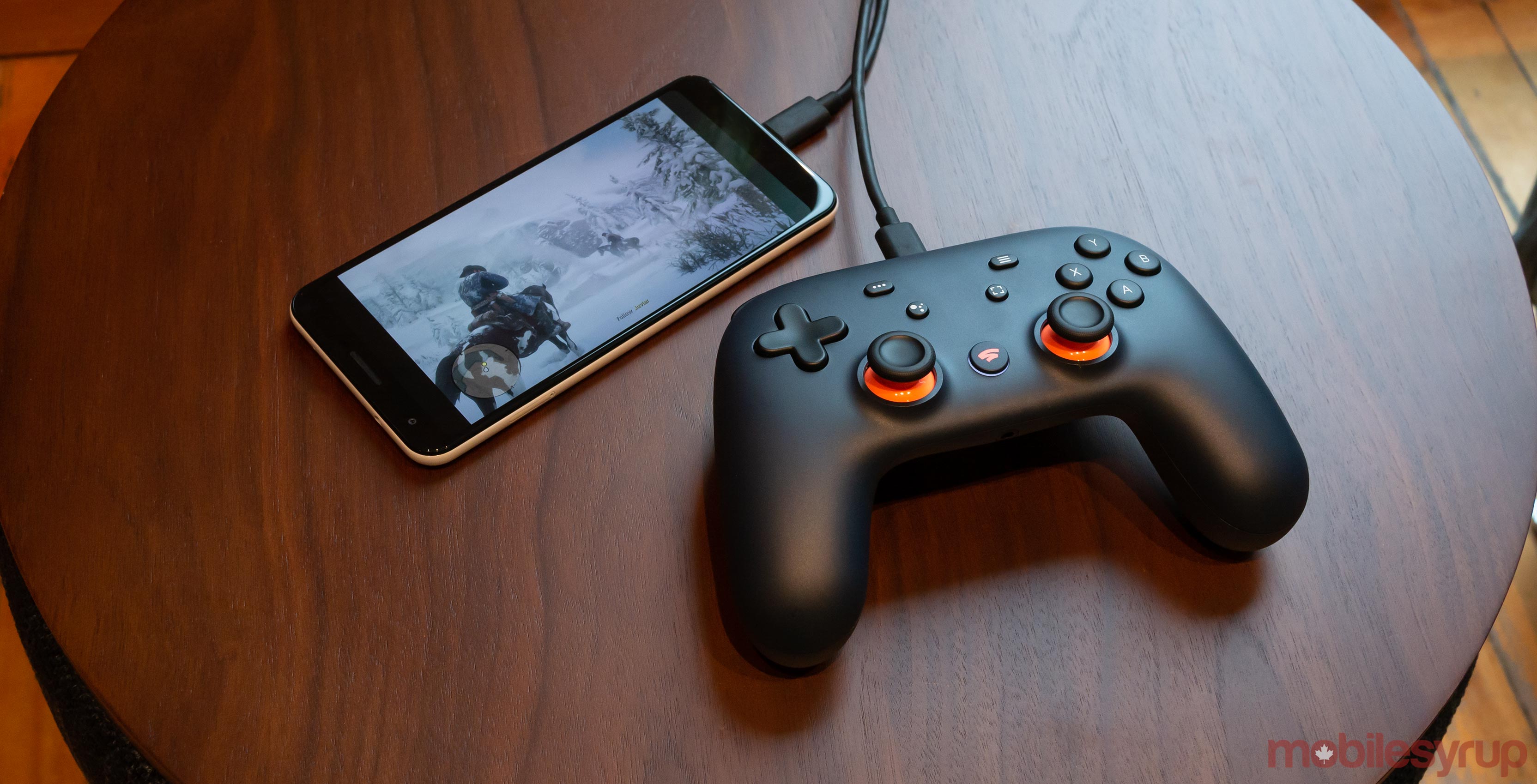
The Pros
- Streaming quality is impressive
- Easy-to-use
- The Stadia controller is exceptionally well-made
The Cons
- Games lineup is sparse and underwhelming
- Many features are lacking at launch
- Only one pricing option at the moment
When Google talks about its Stadia game streaming platform, it typically throws around the term “the future of gaming.”
According to the tech giant, being able to eschew dedicated, expensive hardware in favour of streaming games to lower-cost, everyday devices like phones, tablets and TVs is where the industry is headed.
It’s a lofty goal, to be sure. Unfortunately, Stadia hasn’t really lived up to that promise so far. If this indeed is gaming’s future, then it’s not looking too bright — at least for the time being.
The tech is impressive, but doesn’t have much to show for it
It’s important to note that at launch, Stadia only has the following 22 games:
- Assassin’s Creed Odyssey
- Attack on Titan: Final Battle 2
- Destiny 2: The Collection (Stadia Pro free game, supplied by Google in reviewer’s kit)
- Farming Simulator 2019
- Final Fantasy XV
- Football Manager 2020
- Grid 2019
- Gylt (Stadia exclusive, supplied by Google in reviewer’s kit)
- Just Dance 2020 (supplied by Google in reviewer’s kit)
- Kine (supplied by Google in reviewer’s kit)
- Metro Exodus
- Mortal Kombat 11 (supplied by Google in reviewer’s kit)
- NBA 2K20
- Rage 2
- Red Dead Redemption 2 (supplied by Google in reviewer’s kit)
- Rise of the Tomb Raider
- Samurai Showdown (Stadia Pro free game)
- Shadow of the Tomb Raider: Definitive Edition (supplied by Google in reviewer’s kit)
- Thumper
- Tomb Raider: Definitive Edition
- Trials Rising
- Wolfenstein: Youngblood
While there are undoubtedly some great titles there — with Assassin’s Creed Odyssey and Red Dead Redemption 2, in particular, being two of 2018’s main Game of the Year contenders — it’s nonetheless a rather underwhelming lineup. Almost all of these games released last year or earlier.
To be fair, gaming launch lineups, in general, aren’t usually that strong, but there’s still an expectation that there should be some exciting new experiences accompanying new platforms. The original Xbox launched with Halo: Combat Evolved in 2004. The PlayStation 3 released with Resistance: Fall of Man. The Nintendo Switch debuted with The Legend of Zelda: Breath of the Wild.
Of these launch games, Gylt is the only one that’s exclusive. It’s a well-made spooky indie title from Spanish developer Tequila Works (Rime) that follows a young girl who explores a monster-infested world to find her lost sister. The problem here, though, is that no matter how good Gylt is, it simply has limited mass appeal as a creepy indie puzzle game.
Thankfully, while there isn’t a whole lot to stream on Stadia, the actual act of streaming itself works very well. With its extensive lineup of cloud servers around the world, Google is able to offer a largely smooth and natural gaming experience that’s nearly on par with consoles and PCs. Admittedly, at certain moments in Red Dead Redemption 2, I found myself stopping my horse to take a few moments and marvel at the streaming technology and how far the industry has come.
At launch, there are three ways to stream Stadia games: to a Google Pixel 3a or other Pixel phones; to a computer or tablet with a Chrome browser, or to a TV using a Chromecast Ultra. Across all these devices, you can stream in up to 4K HDR/60fps, although 4K isn’t coming to Chrome until early 2020. Setup is very easy, too, with games launched by simply opening the Stadia app on Android or iOS or visiting Stadia.Google.com on the web.
In terms of internet requirements, you’ll need at least 10Mbps for 720p 60fps, 20Mbps for 1080p HDR/60fps and 35Mbps for 4K HDR/60fps to get steady streams. Those aren’t very steep minimums to meet, especially since the average Canadian household has a broadband download speed of 111.47 Mbps. That said, the speed requirement does leave some rural areas of the country unable to use Stadia and similar video game streaming services. Further, estimates point to Stadia being capable of eating up as much as 1TB of data in 65 hours, making it infeasible for users with data caps.
If internet limits aren’t a concern, though, Stadia can thrive under a variety of conditions. For example, while on my recent trip to London, England, I played Stadia on my Pixel 3a using the public Wi-Fi at Toronto’s Pearson airport, which had a download speed of 47.669 Mbps. Through this, I was able to play Shadow of the Tomb Raider and Mortal Kombat 11 with practically no hiccups.
With the former, Stadia kept up at a consistent 1080p/60fps even during the faster-paced moments when Lara was rushing through a crumbling structure or fighting off mercenaries. Having beaten the game on Xbox One X (which sports a framerate-boosting mode), I can honestly say I noticed little to no difference on Stadia. Mortal Kombat 11 had a few minor moments of combo-offputting lag, but otherwise, it also ran smoothly. For reference, I tried the same games at London’s Heathrow airport on a connection of 49.201Mbps and had a virtually identical experience.
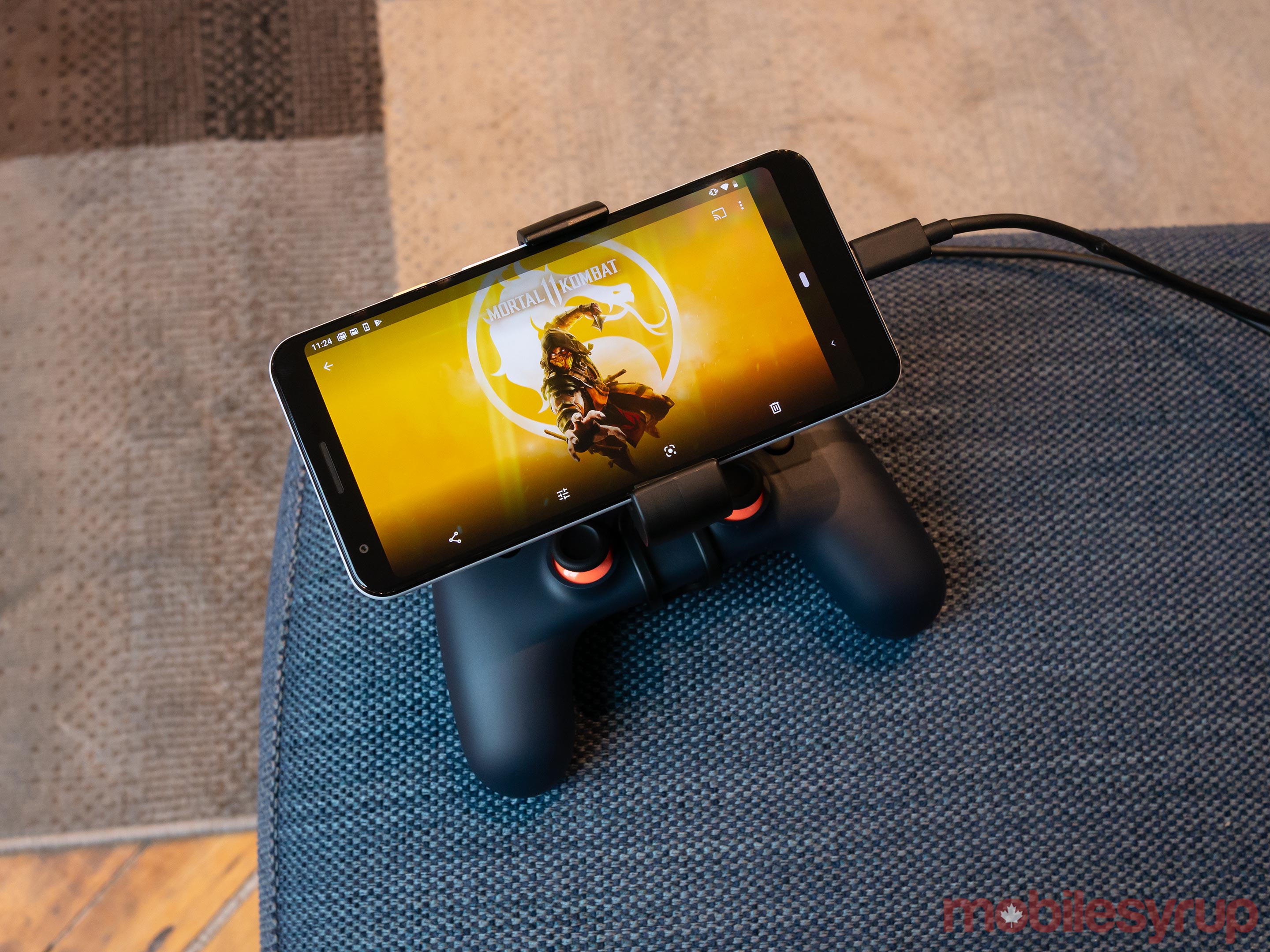
Naturally, travelling is one of the main use cases for a streaming service like this, so it’s reassuring to see it be so successful in this regard. At home or even Toronto’s Ryerson University, where the internet was at least two or three times faster, my play sessions were, naturally, even more stable. In particular, Destiny 2 worked extremely well at home on my TV; I was impressed that I could play through the entire tutorial areas, explore the Tower social space and join an online strike with little to know issues. Likewise, Red Dead Redemption 2 streamed to my 2016 MacBook for an hour with no issues, even as I raced through the snow on my horse or engaged in a classic Wild West shootout.
What’s more, one of the best parts of Stadia is that you never need to worry about game updates. Since games run in the cloud, you’re constantly playing the most recent version of a game. Being able to quickly hop into a game and not worry about any lengthy setup or download times is incredibly convenient.
Further improving the overall experience is the proprietary Google Stadia controller, which was predominantly made in Waterloo, Ontario. The controller links up to your Wi-Fi network for a more solid and reliable connection, which helps reduce input lag. That said, latency issues still occasionally arise, which is a problem for a fighting game like Mortal Kombat 11 or fast-paced online shooter like Destiny 2.
Even better, the controller itself is absolutely great to use. For comparison, it looks and feels quite similar to Microsoft’s excellent Xbox One controller, replete with a proper D-pad, bumpers, concave triggers and smooth analogue sticks. The controller also sports a capture button, built-in mic and Google Assistant functionality to search the web for help with your game. Third-party HID-complaint controllers like the PlayStation 4’s DualShock 4 or Microsoft’s Xbox One can also be used.
A solid foundation, but lacking much to surround it
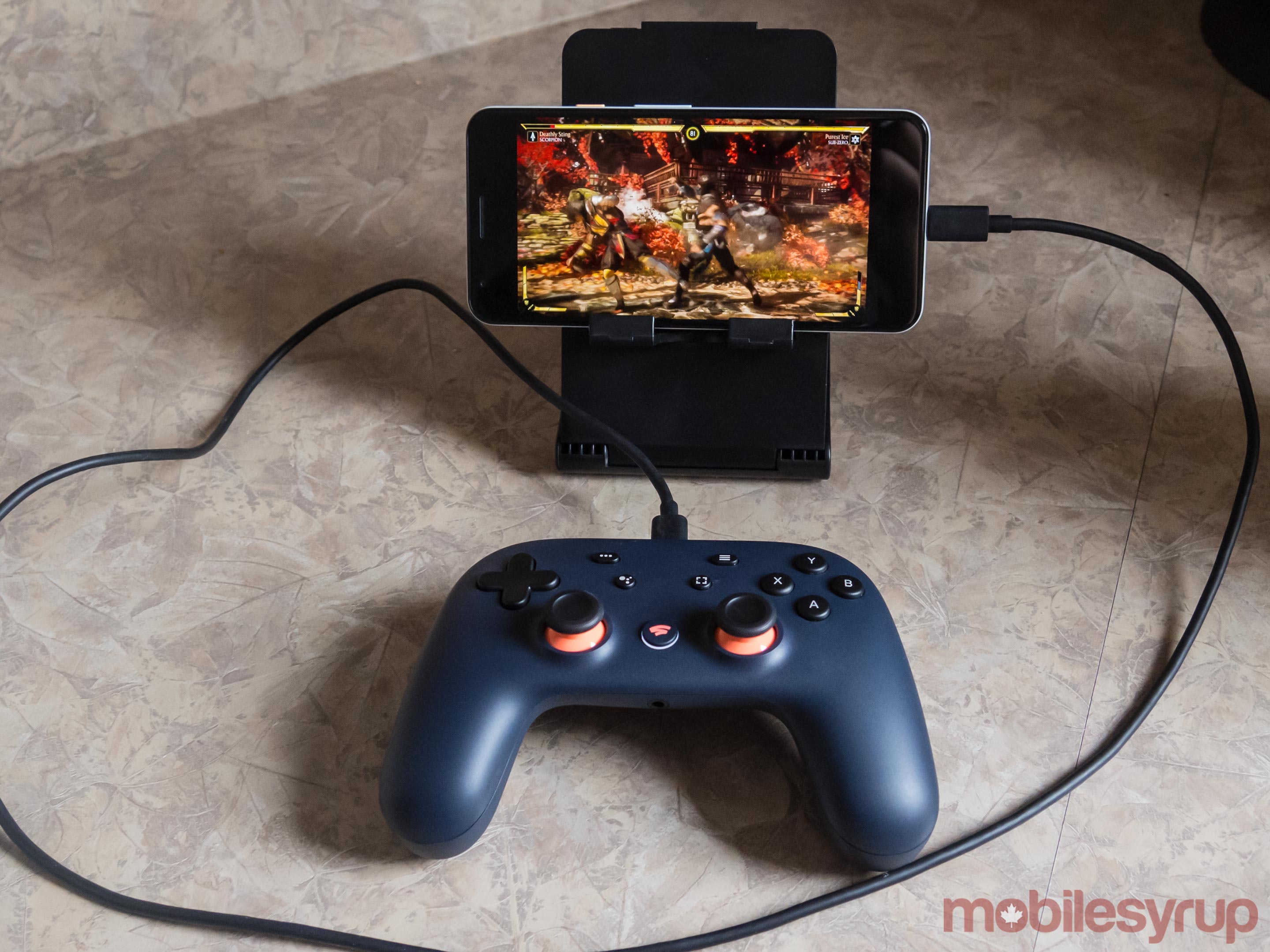
Stadia’s lacklustre lineup is made worse when you consider that Stadia is missing many of the following features:
In a recent Reddit AMA, Google revealed that the following Stadia features won’t actually be ready for launch:
Buddy pass — Each Stadia Founders Edition comes with a three-month subscription that can be gifted to a friend. However, Google says these won’t be sent to customers until about two weeks after they receive their bundle.
Existing Chromecast Ultra support — Only Chromecast Ultras that ship with Stadia controllers will have the firmware required to stream games. Google says existing Chromecast Ultra units will receive the necessary over-the-air update “soon after launch.”
Family sharing — Parents can control what their kids access on their accounts, but games can’t be shared between multiple people until “early next year.”
Stream Connect, State Share, and Crowd Play — These social features allow users to join one another’s games. That said, the first game with Stream Connect is TBD and expected to launch by the end of the year, while State Share and Crowd Play will come sometime in 2020.
Stadia achievement system — You can earn achievements as part of a metagame that’s similar to PlayStation Trophies or Xbox’s Gamerscore. Progress will be recorded for these at launch, but they won’t be displayed anywhere until a yet-to-be-revealed later date.
Staggered release schedule: Even people who pre-ordered Stadia right when the option became available in June may not receive their bundles right away at launch. Google says there are a lot of “moving bits” that might see people receive their bundles a couple of weeks after launch, so “the actual delivery date will depend on the mail truck, traffic lights, etc.” In fact, Doronichev actually offered in the reddit thread to deliver at least one package himself, which isn’t exactly reassuring for how quickly people may receive their orders.
To be missing so many of these features at launch is, quite frankly, a very bad look.
Meanwhile, you’ll also have to wait a while for the bigger games to hit Stadia. A few more games will be added to Stadia’s catalogue by the end of the year, but they’re not new games: Borderlands 3, Darksiders Genesis, Ghost Recon Breakpoint and Dragon Ball Xenoverse 2.
It’s not until early 2020 that major games launch day-and-date on Stadia alongside other platforms, like Bethesda’s Doom: Eternal in March, CD Projekt Red’s Cyberpunk 2077 in April or Square Enix’s Marvel’s Avengers in May.
The competition is doing it better
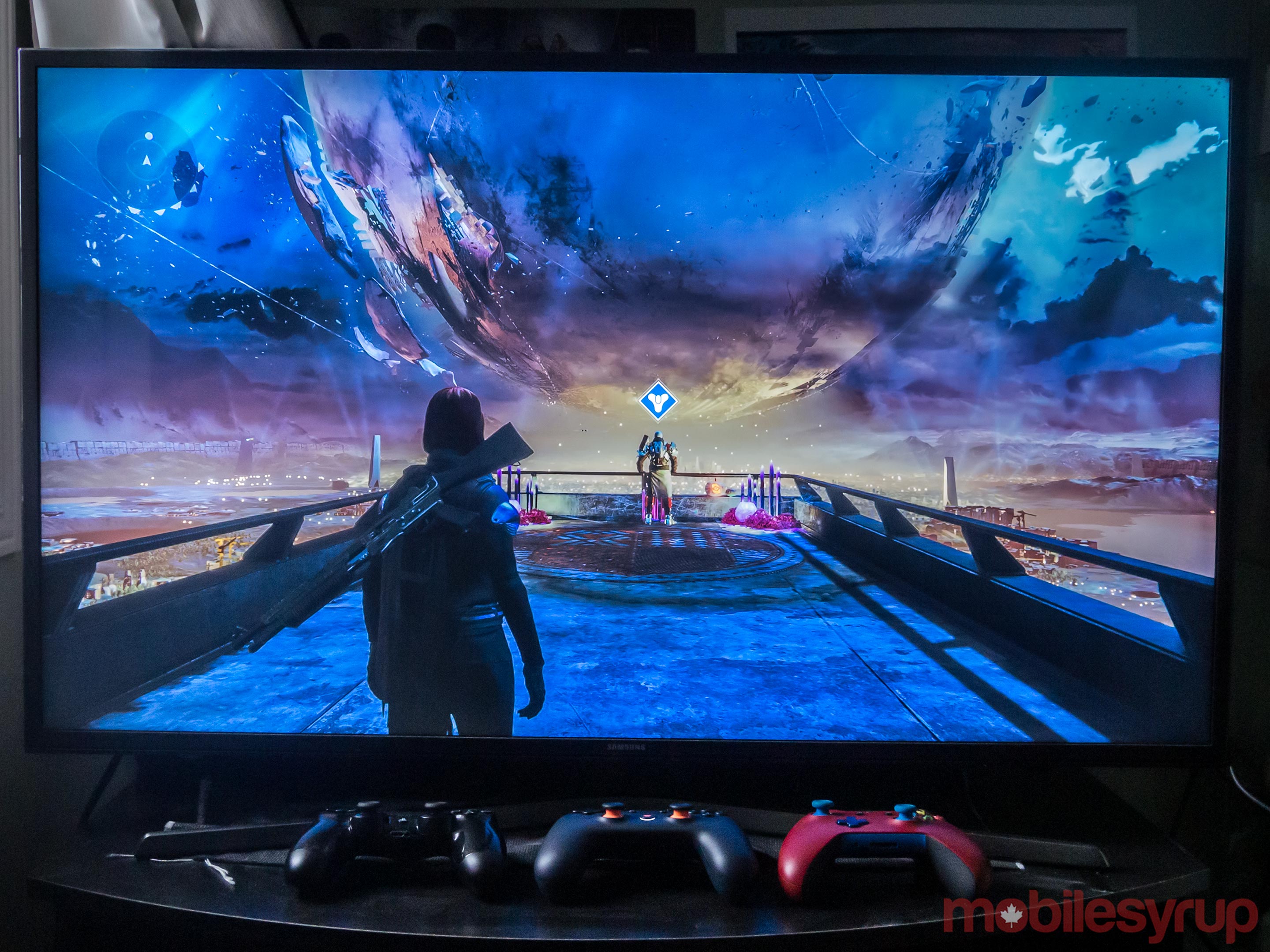
At launch, the only way to play Stadia is through the $169.99 Premiere Edition, which includes a Stadia controller, Chromecast Ultra and three-month subscription to Stadia Pro, the $11.99 CAD/month service that offers access to 4K streaming. A ‘Stadia Base’ tier that gives you up to 1080p/60fps streams without the need for a subscription isn’t coming until sometime in 2020. While Stadia Pro gives some free games, like Destiny 2: The Collection, you still need to buy most of your games à la carte. When these games are already old, it makes that even less appealing.
Therefore, there’s no easy way into Stadia at the moment that doesn’t involve forking over a significant chunk of change. The price for Stadia is steep as it is for what’s available at launch, but it’s made worse when you consider the alternatives. Simply put, Stadia pales in comparison to what gaming giants PlayStation and Xbox offer in terms of their own on-demand game subscription services.
In October, Sony cut the price of PlayStation Now to $12.99 CAD in Canada, a marked drop from the previous $19.99 fee. Additionally, Sony committed to bringing marquee titles to the service each month, starting with the likes of God of War, Uncharted 4: A Thief’s End and Grand Theft Auto V.
For around the same price as Stadia, PlayStation Now gives you access to more than 800 games on PS4 and PC at no additional cost — many of which are exclusive to the PlayStation ecosystem, such as Bloodborne, inFamous Second Son, Persona 5 or the aforementioned God of War and Uncharted 4.
On the other hand, a subscription to Xbox Game Pass costs $11.99 CAD/month and offers access to an ever-growing catalogue of games, including first-party Xbox titles like Gears 5 and the Halo franchise or major third-party titles such as Devil May Cry 5, Rage 2, Middle-earth: Shadow of War and Metro Exodus. For $16.99, Game Pass Ultimate includes subs to Game Pass on both Xbox One and PC, as well as Xbox Live Gold.
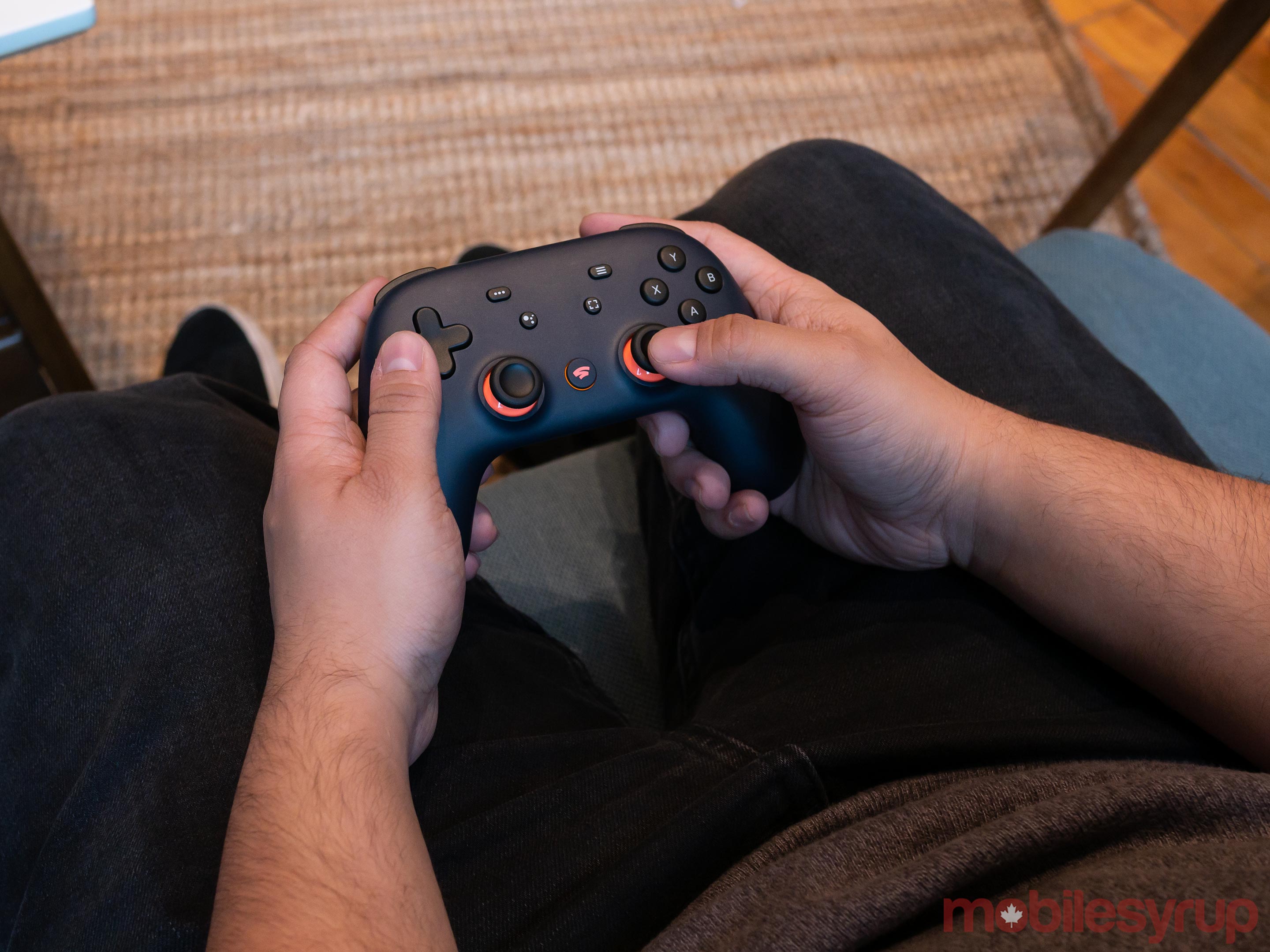
That’s to say nothing of Xbox’s currently Project xCloud service, which leverages Microsoft’s extensive Azure cloud network to stream games to a variety of devices. While that service has yet to launch officially, its value proposition is already far above what Stadia is offering. Even in preview, xCloud has more than 50 games at the moment, which is more than double that of Stadia’s actual launch lineup.
Further, Microsoft has said that the thousands of games available across all three Xbox generations are capable of running on xCloud — and that’s before the company integrates Game Pass into the streaming service for more value. Of course, not all of these titles will actually make their way to the service, but it still shows much more potential than Stadia’s meagre catalogue at the moment.
To be sure, Stadia isn’t a one-to-one comparison with these services since it’s intended to be platform-agnostic. That said, unless someone is really interested in being able to stream a limited number of mostly older games, it’s still hard to recommend someone drop $169 when that could instead go towards a cheap console offering more bang for your buck.
The future
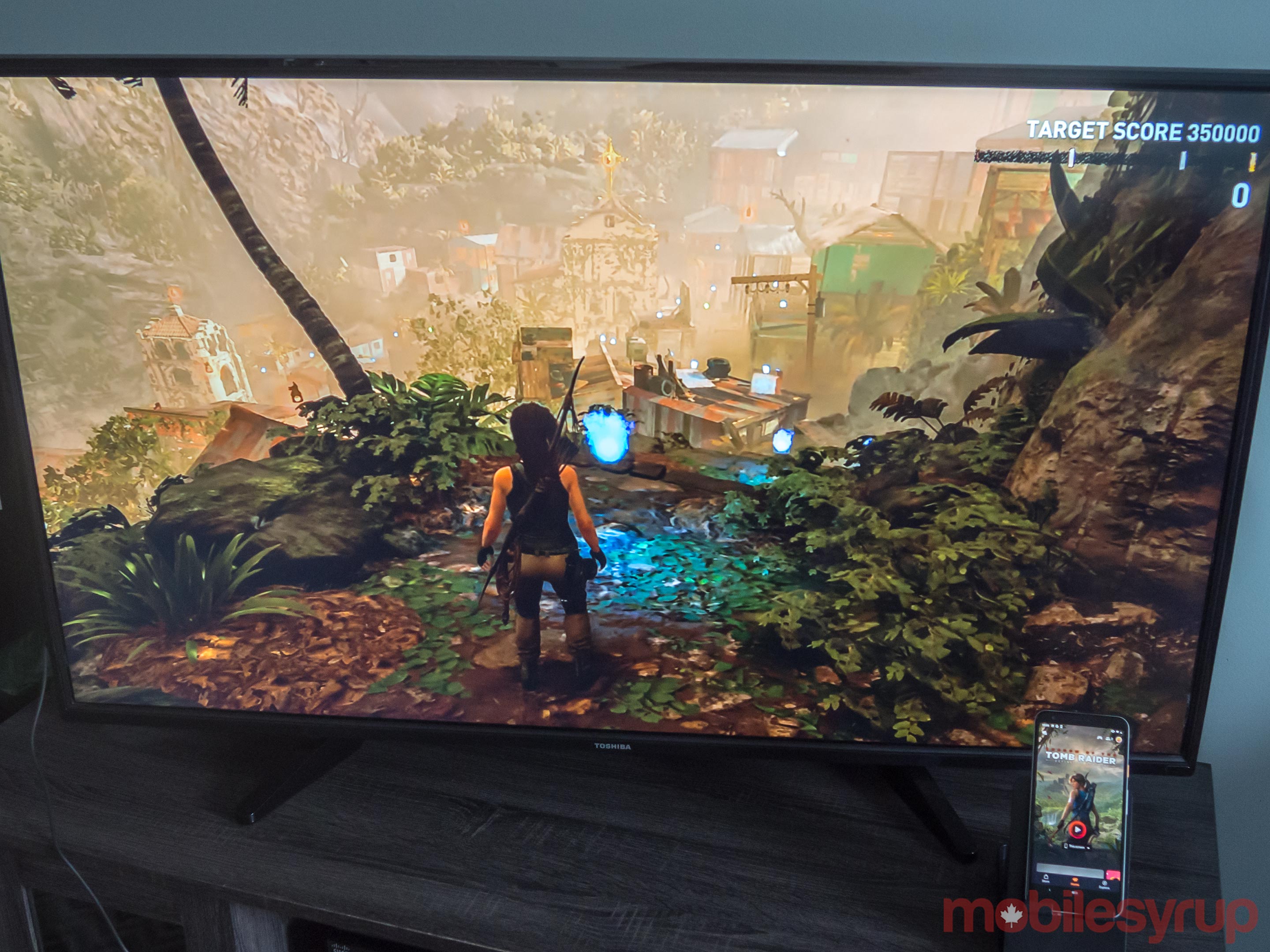
Ultimately, the biggest question mark surround Stadia pertains to how long Google will support the service in the years to come. As many have pointed out online, Google has a history of dropping products that don’t pan out, such as Allo, Clips, Drive, or Glass. In fact, Kine developer Gwen Frey even noted to GamesIndustry.biz that some game makers share a concern that Google might axe Stadia. While Stadia execs assured me in March that Google is “in it for the long haul” with Stadia, the company’s product-killing track record is nonetheless an important point to consider.
Assuming Google does stick with Stadia in the long-term, though, it will be interesting to see how the company distinguishes the service from its competitors through exclusive titles and features.
Firstly, we have little idea what Stadia Games and Entertainment — the division responsible for bringing both original and third-party titles to the platform — is up to. Last month, Google confirmed that veteran Canadian game producer and Stadia Games and Entertainment head Jade Raymond has opened the company’s first development studio in Montreal.
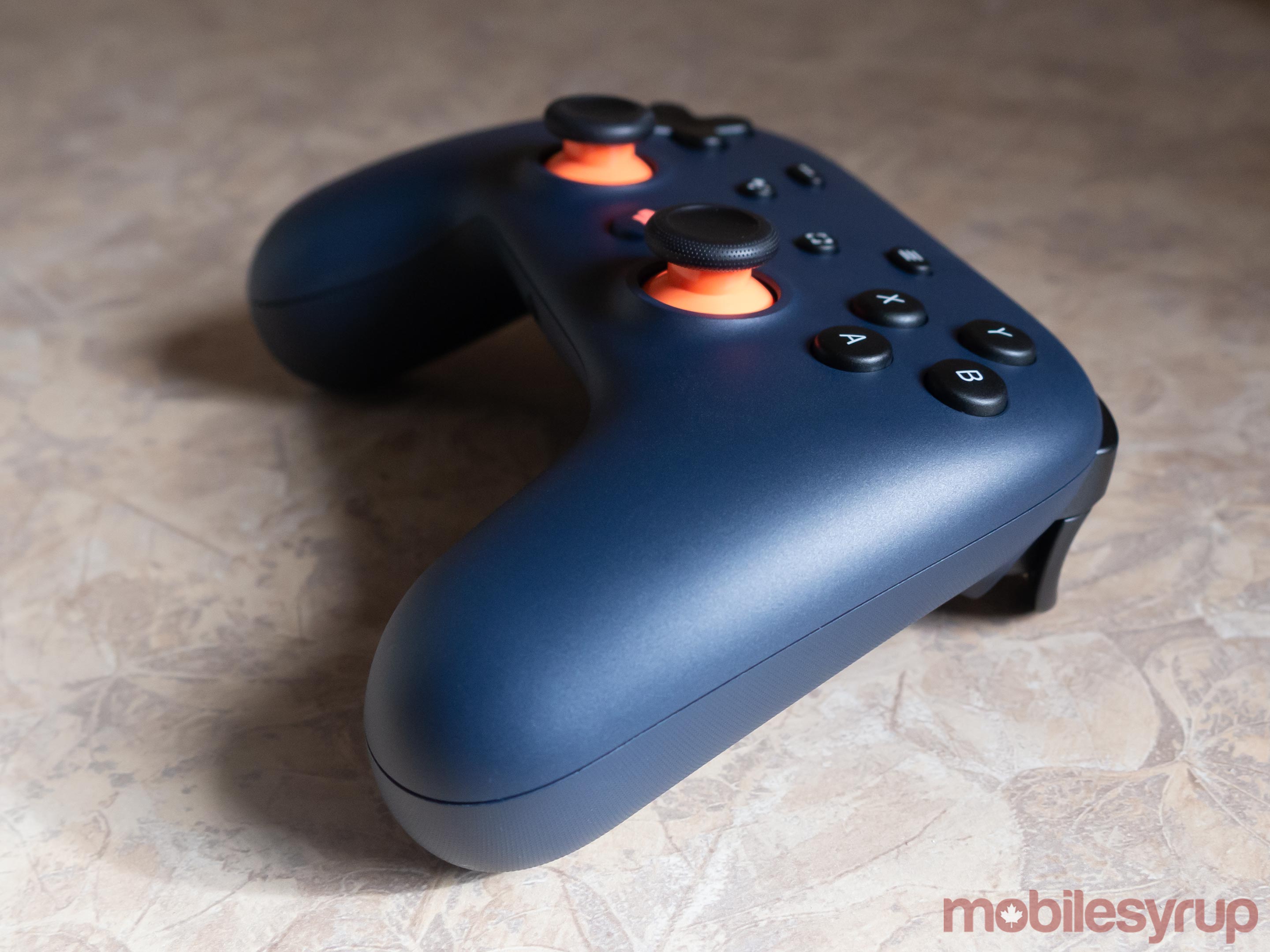
At the same time, Raymond said Google intends to open additional studios in the future. In an interview with GamesIndustry.biz, she noted that these teams will help produce “new exclusive, exciting content” every year, although it may be “several years” to see some of “huge new IP [intellectual property].” Therefore, it remains to be seen what sort of exclusive content is in store for Stadia in the months and years to come.
What was more tantalizing, though, is the types of unique experiences that Google is considering with Stadia. In an interview last month, Raymond said Google aims to integrate with its other platforms into Stadia to create unique experiences.
For instance, she mentioned how Stadia and YouTube could be further combined to create interactive learning experiences. She floated the idea of a documentary about the history of gaming in which the viewer could pick up a controller and start playing through certain parts of the film, adding a layer of interactivity to the educational experience.
Likewise, she mentioned how Google’s Duplex AI technology can create more realistic in-game character interactions. She proposed a situation where a quest-giver in a story-based game would leverage Google Duplex to create believable human interactions, rather than repeat static lines of dialogue. While it remains to be seen how these types of features might pan out, this is the kind of innovative thinking that could help Stadia stand out.
Wait and see for now
Stadia has potential. The core technology powering it is remarkable, and it will no doubt only improve over time.
Unfortunately, Stadia is lacking too many games and features to justify its asking price, especially as competitors offer similar services with far greater value.
Hopefully, Google invests significant time and capital into Stadia going forward to grow the service into the future of gaming it's intended to be. For now, though, you're likely better off waiting, at least until Stadia Base debuts.
Some photography by Patrick O’Rourke."Unfortunately, Stadia is lacking too many games and features to justify its asking price, especially as competitors offer similar services with far greater value."
MobileSyrup may earn a commission from purchases made via our links, which helps fund the journalism we provide free on our website. These links do not influence our editorial content. Support us here.

